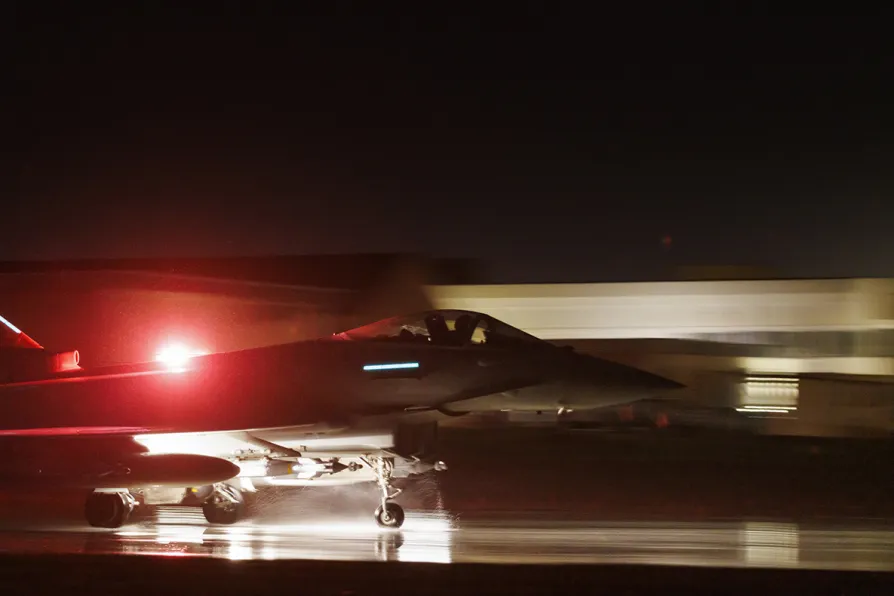Britain condemned for launching ‘largest raid so far on Yemen’
‘The violent repercussions of Israel’s war on Gaza are spreading across the Middle East, threatening a much wider conflict,’ Stop the War says

 A Royal Air Force Typhoon FGR4 takes off to carry out air strikes against Houthi military targets in Yemen, from RAF Akrotiri, Cyprus, January 22, 2024
A Royal Air Force Typhoon FGR4 takes off to carry out air strikes against Houthi military targets in Yemen, from RAF Akrotiri, Cyprus, January 22, 2024
BRITAIN faced condemnation today after carrying out further bombing raids with the US over Yemen.
Royal Air Force jets took part in a second wave of joint US-British action against Houthi forces on Monday night after the movement’s attacks on shipping in the Red Sea and Gulf of Aden continued.
Four RAF Typhoons and a pair of Voyager tankers were involved in the latest action.
Similar stories














